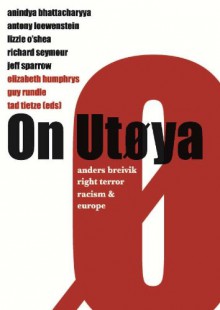In a challenging new book, a collection of Australian and British writers respond to the terrorist attack by Anders Breivik, and attempts by the Right to depoliticise it.On July 22, 2011, Anders Breivik, a right-wing writer and activist, killed more than sixty young members of the Norwegian...
show more
In a challenging new book, a collection of Australian and British writers respond to the terrorist attack by Anders Breivik, and attempts by the Right to depoliticise it.On July 22, 2011, Anders Breivik, a right-wing writer and activist, killed more than sixty young members of the Norwegian Labour Party on Utøya island. Captured alive, Breivik was more than willing to explain his actions as a ‘necessary atrocity’ designed to ‘wake up’ Europe to its betrayal by the Left, and its impending destruction through immigration.Breivik’s beliefs - expressed at length in a manifesto, ‘2083’ - were part of a huge volume of Right-wing alarmism and xenophobia that had arisen in the last decade. Yet Breivik, we were told by the Right, was simply a madman - so mad, in fact, that he had actually believed what the Right said: that Europe was in imminent danger of destruction, and extreme action was required.On Utøya: Anders Breivik, right terror, racism and Europe is a response to this attempt to deny responsibility, and any connection of Breivik’s act to a rising cult of violence, racism, and apocalyptic language. The editors and authors shine a light on Breivik’s actions, and argue that they cannot be understood abstracted from the far-Right racist and Islamophobic social and political conditions in which it emerged.Organised, written and produced within three months of the killings, On Utøya is a challenge to anyone who would seek to portray this event as anything other than it is - a violent mass assassination, directed against the left, to terrorise people into silence and submission to a far-right agenda. It concludes with an examination of the manufacture of hate and fear in Australia, and considers what is needed in a Left strategy to deal with the growing threat of far-Right organising.Edited by Elizabeth Humphrys, Guy Rundle and Tad Tietze, with essays by Anindya Bhattacharyya, Antony Loewenstein, Lizzie O'Shea, Richard Seymour, Jeff Sparrow and the editors.
show less

